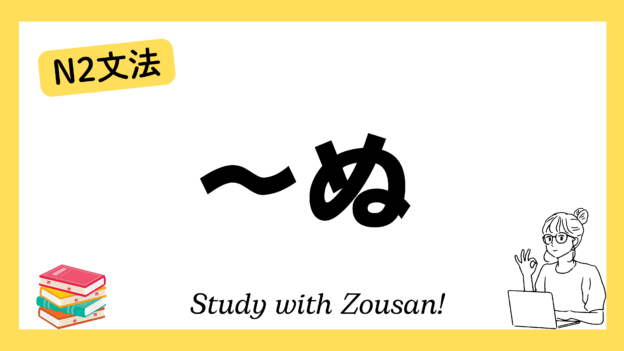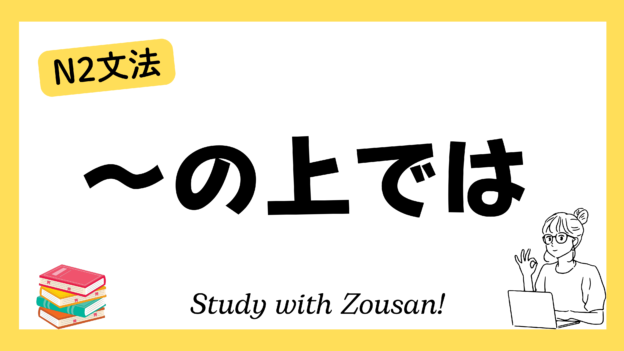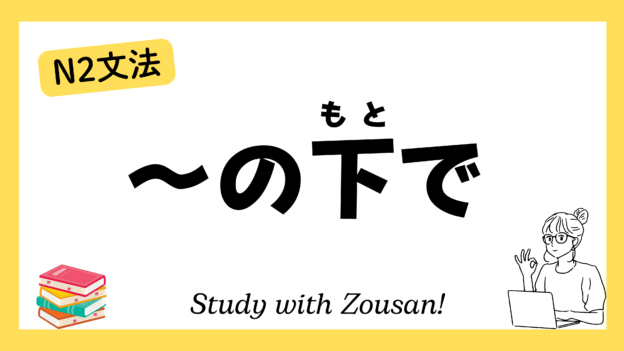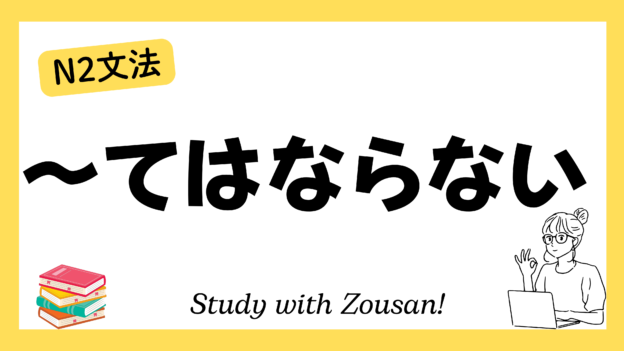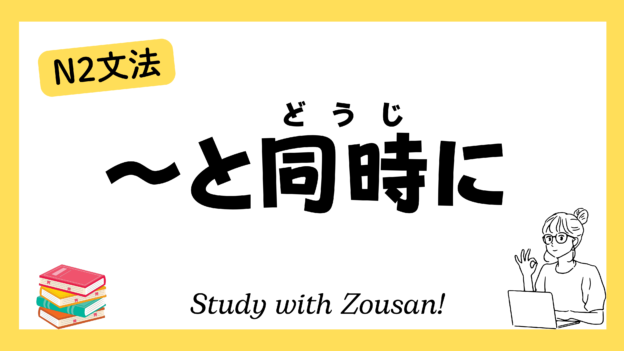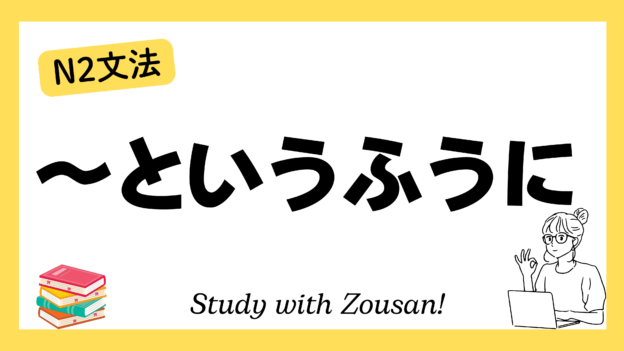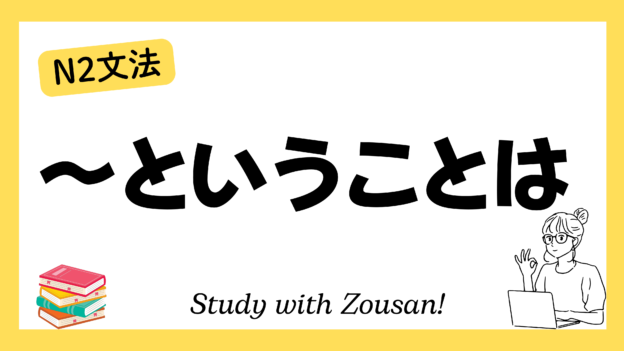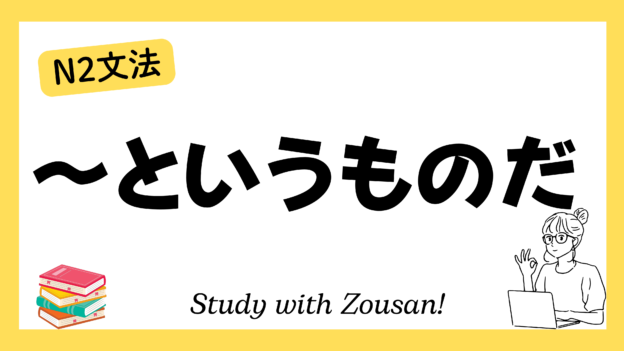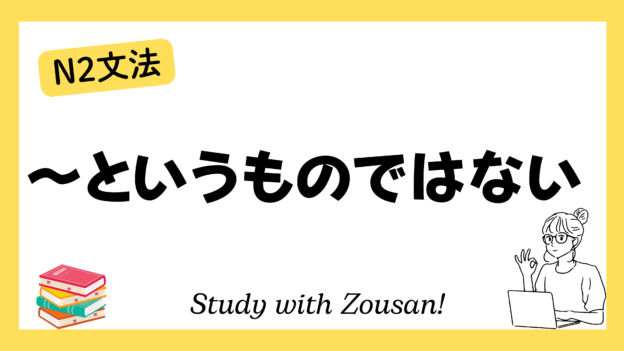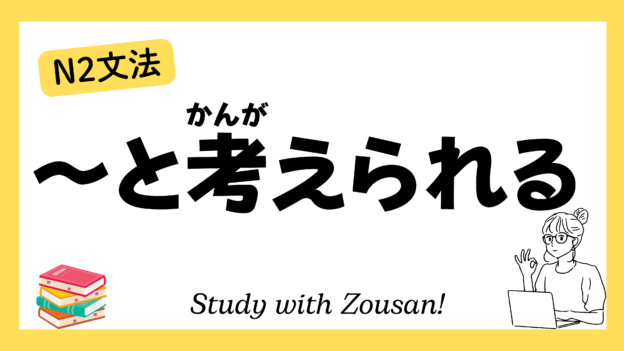Meaning: “Not…” / “Does not…”
The structure ~ぬ is an old-fashioned form of ~ない (negative form) and is used in formal writing, classical literature, or Japanese poetry. It carries a negative meaning and is often found in traditional texts or formal speeches. In modern Japanese, ~ぬ is sometimes used to give a classical or formal tone to a statement.
※Note:
・~ぬ is used instead of ~ない and is combined with verbs to form the negative, similar to ~ない in modern Japanese.
・Although rarely used in daily conversation, ~ぬ can still be found in literature, historical texts, or artistic works.
Structure:
| Verb (ない form) |
Example:
-
-
-
🌟 成功せぬ者は諦めるべきだ。
(せいこう せぬ もの は あきらめる べき だ)
Those who do not succeed should give up. -
🌟 時間は待ってくれぬ。
(じかん は まって くれぬ)
Time waits for no one. -
🌟 努力せぬ者に成功なし。
(どりょく せぬ もの に せいこう なし)
There is no success for those who do not make an effort. -
🌟 悪事を許さぬ心を持つ。
(あくじ を ゆるさぬ こころ を もつ)
Have a heart that does not forgive evil deeds. -
🌟 この問題は解決されぬまま放置された。
(この もんだい は かいけつ されぬ まま ほうち された)
This problem was left unresolved. -
🌟 彼は決して諦めぬ人だ。
(かれ は けっして あきらめぬ ひと だ)
He is someone who never gives up. -
🌟 恐れぬ心で挑む。
(おそれぬ こころ で いどむ)
Face it with a fearless heart. -
🌟 彼女は何事にも屈せぬ意志を持っている。
(かのじょ は なにごと に も くっせぬ いし を もって いる)
She has a will that does not yield to anything. -
🌟 失敗を恐れぬ者だけが成功する。
(しっぱい を おそれぬ もの だけ が せいこう する)
Only those who do not fear failure will succeed. -
🌟 彼は未だ帰らぬ。
(かれ は いまだ かえらぬ)
He has not yet returned.
-
-


